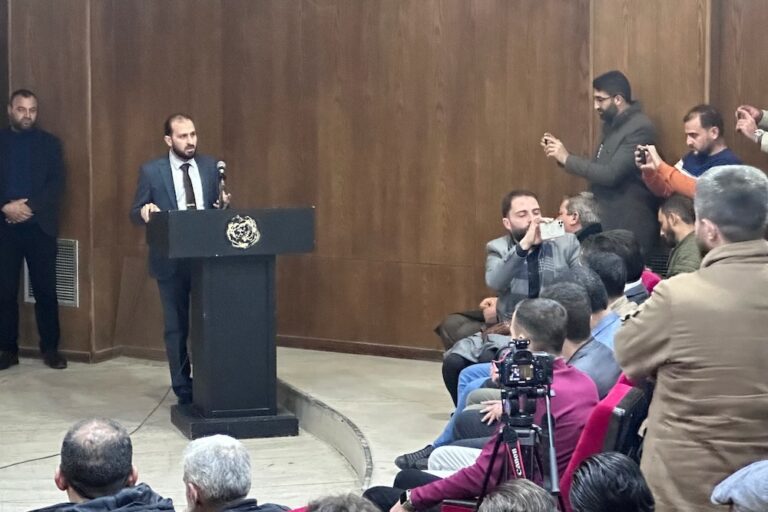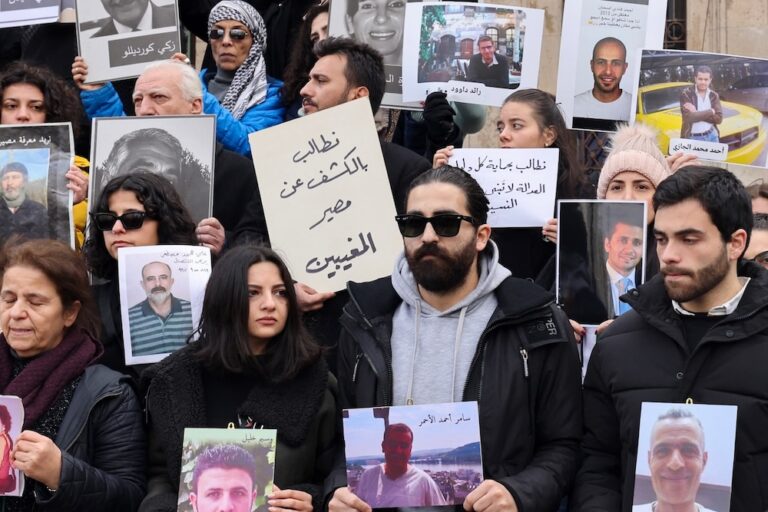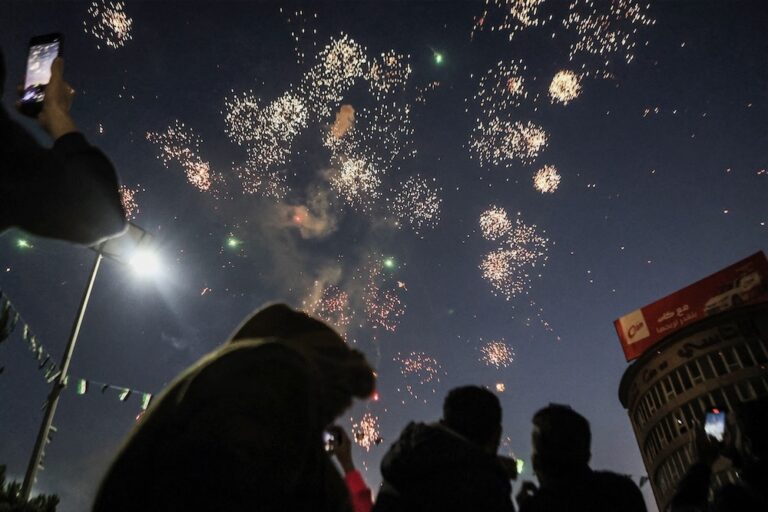(CPJ/IFEX) – In a 13 July 2000 letter to President Bashar al-Assad on the occasion of his recent confirmation as president, CPJ urged him to do everything in his power to ensure that his government upholds international press freedom standards and guarantees the rights of journalists to practice their profession freely. For years, CPJ has […]
(CPJ/IFEX) – In a 13 July 2000 letter to President Bashar al-Assad on the occasion of his recent confirmation as president, CPJ urged him to do everything in his power to ensure that his government upholds international press freedom standards and guarantees the rights of journalists to practice their profession freely.
For years, CPJ has been deeply concerned about the Syrian government’s tight control over the print and broadcast media and its intolerance of dissenting opinion or critical news coverage. Regrettably, independent media or those which engage in truly meaningful criticism of the state do not exist in Syria today. Government censorship remains in effect, and public access to the Internet, despite limited progress made in the past year, lags far behind that of Syria’s regional neighbors. And most disturbing of all, at least five journalists – Faisal Allush, Samir al-Hassan, Marwan Mohammed, Nou’man Abdo, and Nizar Nayyouf – remain in prison because of their published criticisms or because of their alleged affiliations with banned political organizations (see IFEX alerts of 6 July, 30, 12 and 2 May 2000, 25 and 4 October and 1 April 1999, 29, 17 and 10 September 1998, and others).
As information technology continues to make important inroads in the Arab world, evidenced by the proliferation of satellite television and the rapid growth of Internet access, crude state controls over the flow of news and information have become increasingly anachronistic. In April, President Bashar al-Assad remarked in an interview with “The Washington Post” that “[a]s a point of principle, I would like everybody to be able to see everything. The more you see, the more you improve…Knowledge is limitless.” It is CPJâs sincere hope that the president will do his utmost to ensure that these convictions are put into practice so that all Syrian citizens are able to enjoy the freedom to “seek, receive, and impart information and ideas through any media and regardless of frontiers,” as guaranteed by Article 19 of the Universal Declaration of Human Rights.
Recommended Action
Send appeals to the president:
– urging His Excellency to consider the following recommendations to bring Syria’s practices with regard to the press in accordance with international standards:
– free those journalists now in jail because of their published work, or because of their nonviolent activities, including their suspected affiliation with outlawed political groups
– acknowledge publicly his concern about state control over the media in Syria, and his commitment to take steps to reverse this troubling situation and foster freedom of expression, including the freedom to seek, receive and impart information and ideas of all kinds
– state publicly that the Syrian government accepts the principle that it has a duty under internationally recognized norms of free expression to ensure media pluralism, including the dissemination of a diversity of views, even if these views are opposed to or critical of prevailing state policies
– permit the emergence of independent media, free from state control, and encourage journalists in the government and private press to carry out independent reporting, with an explicit guarantee that authorities will not penalize them – directly or indirectly – for such professional activities
– halt all forms of government censorship, including censorship of foreign newspapers that enter the country
– ensure that access to the Internet is available to all citizens and that it is free from government censorship or control
Appeals To
APPEALS TO:
His Excellency Dr. Bashar al-Assad
President of the Syrian Arab Republic
c/o the Embassy of Syria
2215 Wyoming Avenue, NW
Washington, DC 20008
Please copy appeals to the source if possible.


